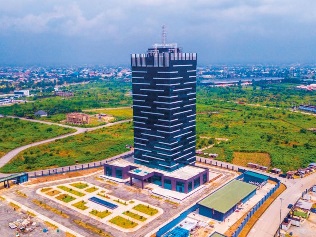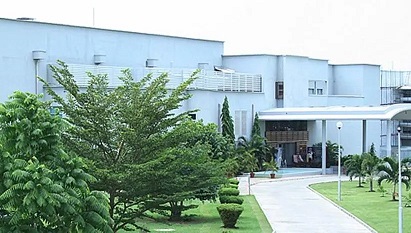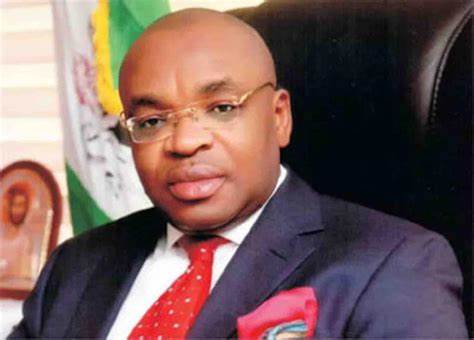The public sector is the part of the economy that is controlled by the government and provides essential services to the citizens, such as health, education, security, and infrastructure. The private sector is the part of the economy that is owned and operated by individuals and businesses, and competes for profit and market share.
Both sectors have their own advantages and disadvantages, but in many developing countries, the public sector is often plagued by inefficiency, corruption, bureaucracy, and poor performance. This is why Udom Emmanuel, the governor of Akwa Ibom State in Nigeria, has advocated for the need to introduce private sector discipline in the public sector.
According to Emmanuel, private sector discipline means applying the principles and practices of the private sector to the public sector, such as accountability, transparency, innovation, customer satisfaction, and results-oriented management. He believes that this will help to improve the quality and delivery of public services, and foster a culture of excellence and professionalism among public servants.
Emmanuel has demonstrated his commitment to this vision by implementing various reforms and initiatives in his state, such as:
- Establishing a Public-Private Partnership (PPP) framework to attract and facilitate investments from the private sector in key sectors such as power, agriculture, tourism, and industrialization.
- Creating a Due Process and Technical Audit Bureau to ensure that all public contracts and projects are executed in accordance with the best standards and specifications, and to eliminate waste and fraud.
- Launching an Enterprise Development Centre to provide training, mentoring, and access to finance for entrepreneurs and small businesses, and to promote a culture of innovation and creativity.
- Introducing a Performance Management System to monitor and evaluate the performance of all public institutions and officials, and to reward excellence and sanction non-performance.
- Enhancing the welfare and capacity of public servants by providing regular training, incentives, and recognition, and by enforcing discipline and ethics.
These measures have yielded positive results for Akwa Ibom State, as it has recorded significant improvements in its socio-economic indicators, such as:
- Achieving the highest GDP growth rate in Nigeria, at 11.4%, and the second highest per capita income, at $2,779, in 2022.
- Becoming the largest producer of electricity in Nigeria, with a total installed capacity of 685 megawatts, and achieving 100% power supply to all urban and rural areas.
- Developing the largest and most diversified industrial base in Nigeria, with over 20 functional industries, such as fertilizer, syringe, meter, flour, coconut, and rice mills, and creating over 100,000 direct and indirect jobs.
- Becoming the leading state in agriculture, with the highest production of cassava, palm oil, cocoa, and fish, and the establishment of the largest livestock farm in West Africa.
- Becoming the most preferred destination for tourism and hospitality, with the development of world-class attractions, such as the Ibom Golf Resort, the Ibom Tropicana Entertainment Centre, the Ibom Deep Seaport, and the Ibom International Airport.
In conclusion, Udom Emmanuel has shown that private sector discipline is indeed seriously needed in the public sector, and that it can transform the fortunes of a state and its people. He has set an example for other leaders and governments to emulate, and has proven that with vision, determination, and innovation, anything is possible.







